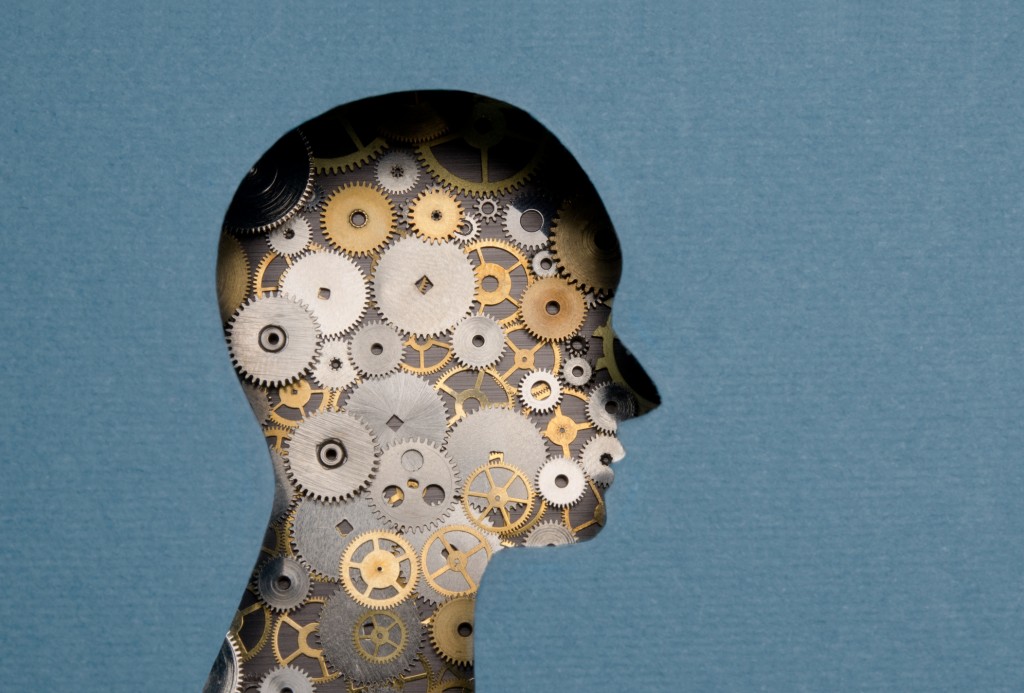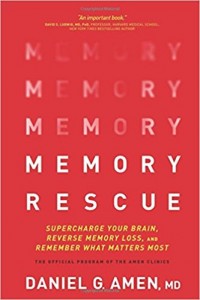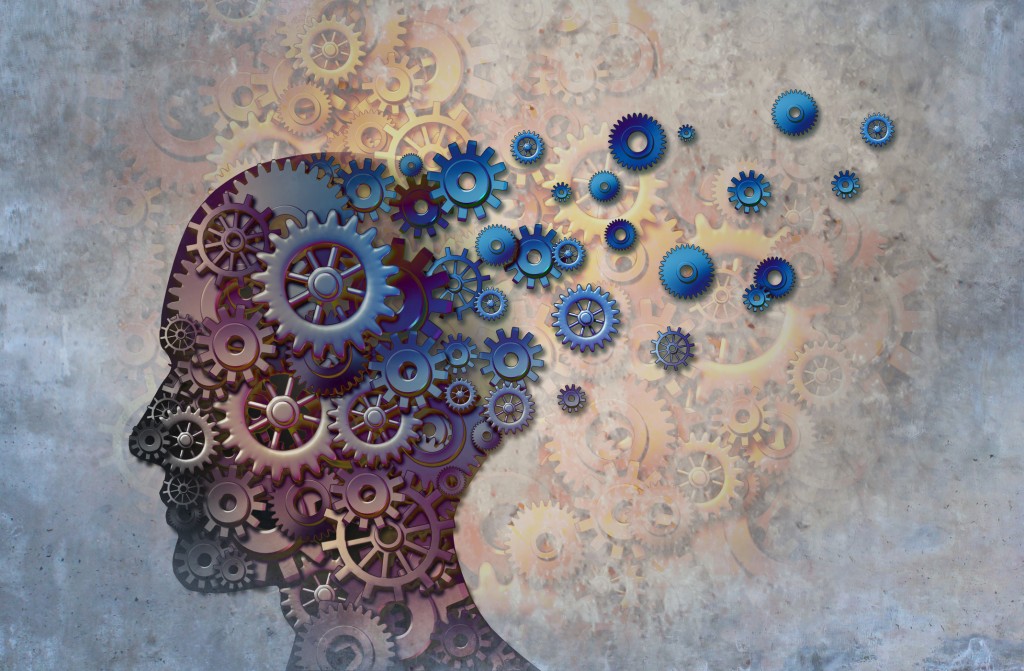How To Rescue Your Memory, Recharge Brain


Your brain’s history is not its destiny. Even if you have brain fog or trouble remembering now, it doesn’t mean you always will. Although the problem is common as we age, it is not inevitable. And memory loss can be treated most effectively in the early stages. If you or a loved one is struggling with recall or memory, no matter how significant it seems, now is the time to get serious about your brain’s health.
 Memory Rescue by Daniel G. Amen, M.D. is based on an amazing simple idea: The best way to sharpen your memory, reverse brain energy, and decrease your risk of Alzheimer’s is to eliminate, prevent, or treat of the risk factors that steal your mind.
Memory Rescue by Daniel G. Amen, M.D. is based on an amazing simple idea: The best way to sharpen your memory, reverse brain energy, and decrease your risk of Alzheimer’s is to eliminate, prevent, or treat of the risk factors that steal your mind.
Brain imaging research demonstrates that memory loss actually starts in the brain decades before you have any symptoms. Learn the actions you can take to help not just prevent memory loss later in life . . . but to begin restoring the memory you may have already lost.
Expert physician Dr. Amen reveals how a multipronged strategy―including dietary changes, physical and mental exercises, and spiritual practices―can improve your brain health, enhance your memory, and reduce the likelihood that you’ll develop Alzheimer’s and other memory loss–related conditions.
If you want to rescue your memory, here are 7 steps to take:
- LOVE AND PROTECT YOUR BRAIN — As simple as this idea is, most people never really think about brain security. Remember – your brain is soft, your skull is hard. It is critical that you protect your brain from concussions.
- KNOW AND OPTIMIZE YOUR IMPORTANT NUMBERS — Having important health numbers at an optimal level is critical to brain function. However, you can’t change what you don’t measure. Be aware of your body mass index (BMI), blood pressure (BP) and vitamin D levels.
- ENGAGE IN NEW LEARNING — Research is clear that new learning and stimulating lifestyles lead to better cognitive outcomes later in life. If your job does not provide new learning opportunities, create them for yourself – take a class, start a new hobby, learn a new language, begin playing an instrument.
 GET GOOD SLEEP — Healthy sleep is absolutely essential to a brain healthy life. Sleep rejuvenates all the cells in your body, gives brain cells a chance to repair themselves, helps wash away neurodegenerative toxins that build up during the day, and activates neuronal connections that might otherwise deteriorate due to inactivity.
GET GOOD SLEEP — Healthy sleep is absolutely essential to a brain healthy life. Sleep rejuvenates all the cells in your body, gives brain cells a chance to repair themselves, helps wash away neurodegenerative toxins that build up during the day, and activates neuronal connections that might otherwise deteriorate due to inactivity.- EXERCISE — The more you exercise, the healthier your blood vessels and blood flow, which leads to overall improved brain function and better memory. Make sure to combine aerobic exercise four to five times per week with weight training two to three times per week.
- USE A MULTI-MECHANISM APPROACH — When you get sick or age, it is never just one biological mechanism that fails; it is generally multiple mechanisms, such as blood flow, toxic buildup, nutrient depletion, and inflammation. Therefore, it is important to utilize a multiple mechanism approach to improving brain health.
- ATTACK THE RISK FACTORS FOR ALZHEIMER’S AND OTHER DEMENTIAS
- Obesity – if you’re overweight, you need to lose weight.
- Alcohol – stop drinking alcohol; it is not a health food.
- Gut health – there is a reason your gut is considered your second brain; balance your gut health.
- Marijuana – negatively affects the hippocampus, your brain’s major memory center.
- Sleep apnea – decreases memory function when untreated.

Keeping your brain healthy isn’t just a medical issue; it’s a God-given capacity and an essential building block for physical, emotional, and spiritual health. Take action against the fast-increasing memory crisis that threatens this crucial part of who you are―and help your brain, body, and soul stay strong for the rest of your life.